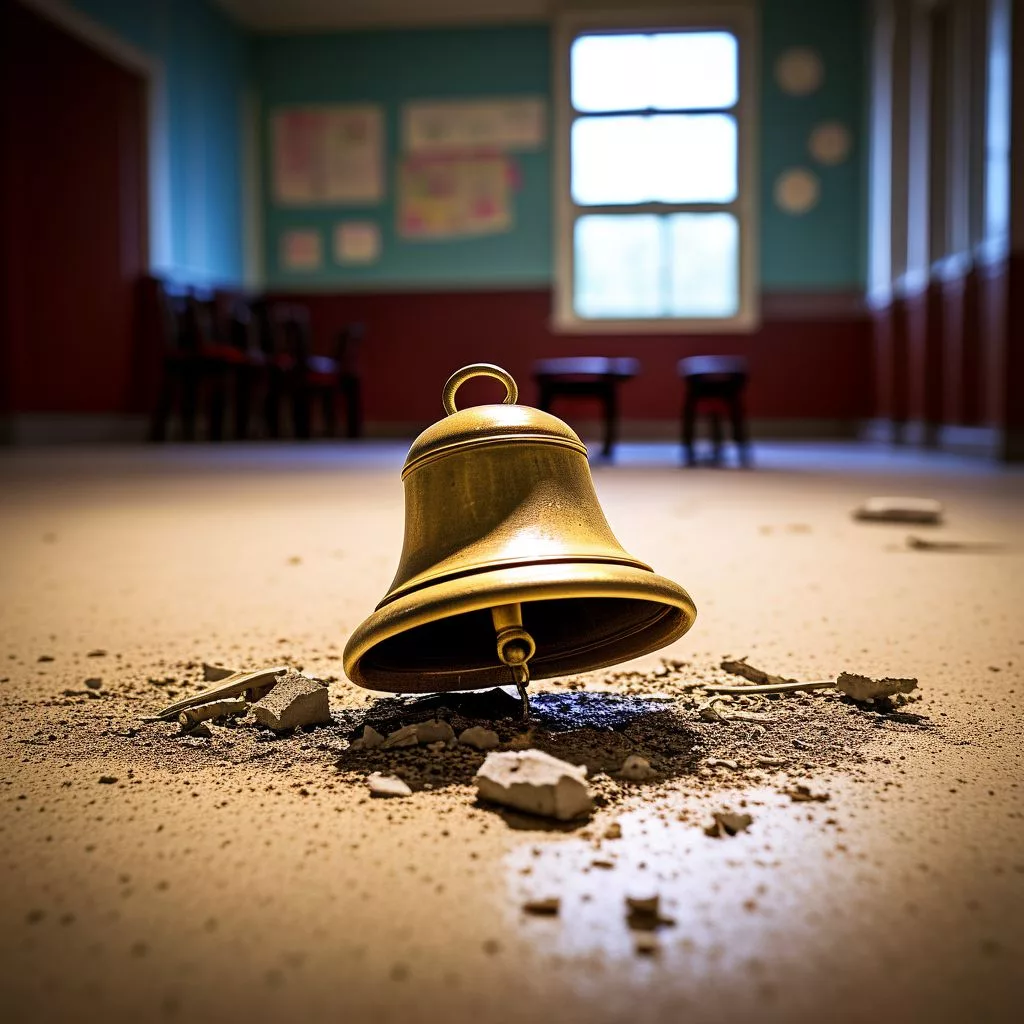The #JusticeforCwecwe movement began after a seven-year-old girl was allegedly raped at Bergview College in Matatiele, South Africa. This shocking event turned the peaceful town upside down and sparked outrage across the country. The school’s slow response and lack of support for the victim’s family only fueled the fire, leading to calls for change in how educational institutions handle such serious issues. With public figures joining the fight, the movement has grown into a powerful demand for justice, ensuring that children’s safety is prioritized in schools everywhere. Matatiele now stands strong, united in the quest for a better future for all children.
What is the #JusticeforCwecwe movement about?
The #JusticeforCwecwe movement emerged in response to the alleged rape of a seven-year-old at Bergview College in Matatiele, South Africa. It advocates for justice and accountability in educational institutions, highlighting systemic gender-based violence and calling for reforms to protect children’s safety.
A Tranquil Town Shaken by Controversy
Matatiele, a serene town in the Eastern Cape, has found itself at the center of a national controversy. Bergview College, a private school celebrated for its peaceful environment and strong academic reputation, has gained attention for deeply troubling reasons. Allegations of a grievous crime within the school’s premises have led to its registration being revoked, sparking outrage across South Africa and birthing the powerful hashtag #JusticeforCwecwe.
In October 2024, a horrifying incident occurred involving a seven-year-old pupil who was allegedly raped while waiting for transportation. The severity of this incident and the subsequent handling of the case by the school have caused widespread indignation. The victim’s mother, herself a survivor of sexual violence, shared her heartbreak and frustration publicly. Instead of receiving support, she was handed a transfer letter for her daughter, a move perceived as a gross insensitivity by Bergview College. This indifferent response from the institution ignited national outrage and galvanized a wave of support and activism across the country.
The Broader Context of Gender-Based Violence
To fully grasp the significance of this incident, one must consider the broader social and historical contexts that shape reactions to such tragedies. South Africa’s long and painful history with gender-based violence provides a grim backdrop to this case. The struggle for justice in these situations often mirrors the larger socio-political landscape, marked by complexities and systemic challenges. This particular case stands out not just for the heinous crime but also for the school’s apparent lack of accountability and empathy.
Basic Education Minister Siviwe Gwarube emerged as a vocal advocate for the victim and her family. Gwarube’s active involvement illustrated the critical role public officials can play in championing justice and integrity. She engaged with provincial officials and demanded prompt action. Her statements on social media resonated widely, amplifying the calls for justice and highlighting the urgency of the situation.
In response to mounting pressure, Eastern Cape Education MEC Fundile Gade acted with commendable speed. Following the minister’s intervention, the provincial department swiftly moved to deregister Bergview College. This decisive action underscored a vital point: educational institutions must prioritize the safety and well-being of their students. The department’s statement made it clear that Bergview College’s handling of the case was inadequate and violated the essential conditions required for independent schools to operate.
Institutional Failures and Public Outcry
The school principal’s alleged refusal to cooperate with the police further complicated the investigation, stalling progress and deepening public dismay. SABC News reported that law enforcement officials had confirmed a rape case had been opened, but the school’s lack of cooperation hindered their efforts. This obstruction added another layer of frustration and heartbreak for the family and the community at large.
Following the provincial department’s deregistration notice, plans were initiated to accommodate the displaced students. The department emphasized that child safety is non-negotiable, serving as a stern reminder to all educational institutions about their paramount responsibility. Although reactive, the authorities’ swift actions provided a semblance of justice and institutional accountability.
Public outcry continued to crescendo, with influential voices joining the demand for justice. Media personality Somizi Mhlongo’s public support for the victim’s family brought additional attention to the cause. His pledge to cover the family’s legal fees was more than a gesture of goodwill; it was a powerful statement against systemic injustices. Mhlongo’s involvement highlighted the significant role that public figures can play in societal issues, leveraging their platforms for advocacy and change.
A Movement for Justice and Reform
The #JusticeforCwecwe campaign has evolved into a national movement, symbolizing a collective demand for justice and reform. The planned march in Cape Town on April 1, 2025, represents a critical moment in this journey. Such collective actions draw from South Africa’s rich history of protest and activism, echoing the struggles of past movements that sought to dismantle injustice and inequality.
Analyzing this scenario through the lens of historical and artistic movements, one can see parallels with the themes of advocacy and resistance that have permeated South Africa’s cultural and political landscape. The nation’s art, literature, and social movements have long grappled with issues of violence, justice, and societal transformation. The #JusticeforCwecwe campaign is a contemporary manifestation of these enduring struggles.
Moreover, this case underscores a poignant truth: individual stories can catalyze broader societal change. By sharing her story, the victim’s mother not only sought justice for her daughter but also highlighted the pervasive issue of gender-based violence. Her narrative became a powerful tool for advocacy, resonating with countless others who have faced similar injustices.
The Role of Media and the Path Forward
In this unfolding saga, the role of media, both traditional and social, cannot be overstated. Platforms like Twitter and podcasts have democratized information dissemination, allowing for immediate and widespread mobilization. The hashtag #JusticeforCwecwe is more than a digital rallying cry; it is a testament to the power of collective consciousness in the digital age.
While the deregistration of Bergview College marks a significant step, the journey to justice is far from over. Focus now shifts to law enforcement and the judicial process. Police Minister Senzo Mchunu’s involvement is crucial, emphasizing the need for a thorough and expedited investigation. The public’s demand for accountability extends beyond the school to all individuals and institutions implicated in the cover-up.
This case serves as a stark reminder of the importance of vigilance and accountability in our educational institutions. Schools are meant to be sanctuaries of learning and growth, not places where such unimaginable horrors can occur. The swift and decisive actions taken by the authorities convey a powerful message: the safety and well-being of students are paramount and non-negotiable.
As the #JusticeforCwecwe movement gains momentum, it reflects a broader societal call for systemic change. The courage of one family has sparked a nationwide conversation, one that challenges us to confront uncomfortable truths and demand a better future for all children. Matatiele, once a quiet town, now stands as a symbol of resilience and the relentless pursuit of justice.
FAQ: #JusticeforCwecwe Movement
What is the #JusticeforCwecwe movement about?
The #JusticeforCwecwe movement emerged in response to the alleged rape of a seven-year-old girl at Bergview College in Matatiele, South Africa. It advocates for justice and accountability in educational institutions, emphasizing the need to address systemic gender-based violence and calling for reforms to protect children’s safety in schools.
How did the incident affect the community of Matatiele?
The tragic incident significantly shook the peaceful town of Matatiele, transforming it into a center of national outrage. The community rallied together, demanding justice and reform in the wake of the alleged crime and the school’s inadequate response, which included transferring the victim instead of offering support.
What actions have been taken against Bergview College?
In light of the allegations and the school’s response, the Eastern Cape Education MEC, Fundile Gade, moved swiftly to deregister Bergview College. The provincial department determined that the school violated essential conditions required for independent institutions to operate, emphasizing that student safety must be prioritized.
How have public figures contributed to the movement?
Public figures, including Basic Education Minister Siviwe Gwarube and media personality Somizi Mhlongo, have played crucial roles in amplifying the #JusticeforCwecwe movement. Gwarube’s advocacy helped to mobilize support for the victim’s family, while Mhlongo’s pledge to cover their legal expenses showcased solidarity and the significance of public figures in social justice movements.
What are the broader implications of the #JusticeforCwecwe movement?
The #JusticeforCwecwe campaign serves as a reflection of South Africa’s ongoing struggle with gender-based violence, as well as a call for systemic change within educational institutions. It highlights the urgent need for reforms to ensure safety in schools and has sparked nationwide conversations about accountability and justice for victims of such crimes.
What is planned for the future of the #JusticeforCwecwe movement?
A significant march is planned in Cape Town on April 1, 2025, aimed at drawing attention to the movement and further advocating for justice and reform. The campaign continues to emphasize the importance of vigilance and accountability in educational institutions while fostering a collective call for societal change to protect children from violence.












